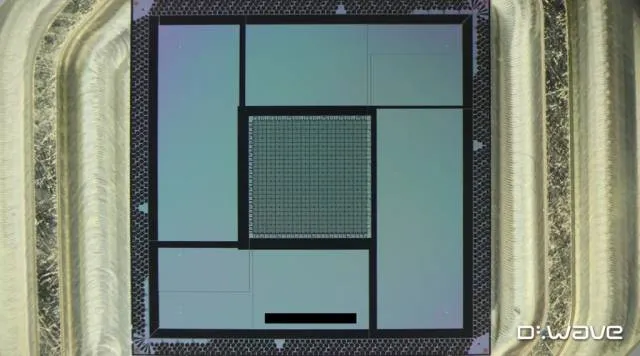6.13.24

A team of researchers has developed a quantum solver for binary optimization problems that outperforms any previously published alternative. The alternative solver (for quantum annealers) was tested on IBM quantum computers and could deliver correct solutions for problems with up to 127 qubits. The team’s quantum solver increases the likelihood of finding the minimum energy by up to 1,500 times compared to results using a D-Wave annealer. This represents the largest quantum optimizations successfully solved on hardware to date and the first time a gate-model quantum computer has outperformed an annealer for binary optimization problems.
Quantum Solver Outperforms Quantum Annealers?
A team of researchers (from Q-CTRL, including founder Michael J. Biercuk) has developed a quantum solver for binary combinatorial optimization problems that consistently delivers correct solutions for problems with up to 127 qubits. This quantum solver, tested on IBM quantum computers, outperforms any previously published alternative and represents a significant advancement in quantum computing.
The quantum solver was benchmarked against several classically nontrivial unconstrained binary optimization problems. The team demonstrated the solver’s ability to correctly solve Max-Cut instances for random regular graphs using up to 120 qubits. The graph topologies were not matched to device connectivity, which is a significant achievement. The solver was also applied to higher-order binary optimization, successfully searching for the ground state energy of a 127-qubit spin-glass model with linear, quadratic, and cubic interaction terms.

The D-Wave Annealing Chip
Quantum Computing: Beyond the Noisy Intermediate-Scale Quantum Era
The quantum computing industry has seen significant acceleration in both hardware and software development in recent years. This progress has moved the industry beyond the noisy intermediate-scale quantum (NISQ) era, where demonstrating conceptual capability was the primary focus. The industry is now on the brink of delivering commercial and economic value for industry-relevant problems.
Combinatorial optimization problems, which are ubiquitous in logistics, finance, transportation, networking, and other industries, represent a key problem-class of interest for quantum solutions. These problems are classically nontrivial, motivating the use of heuristics at relatively modest scales. However, the shortcomings of classical heuristics open an opportunity for quantum computers to deliver commercial value with reasonably modest systems.
Quantum Annealing vs Gate-Model Quantum Computers
Quantum annealing is an efficient technique for solving binary optimization problems because the limited functionality of the hardware reduces error pathways and simplifies device scaling. Gate-model quantum computers and quantum annealers share formal equivalence from the perspective of computational complexity, but various studies point to potential practical advantages for annealers on certain problem types.
In multiple experiments, annealers have provided high-quality solutions for QUBO problems, and higher-order terms and/or constraints have also been included by leveraging their scaling advantages via the use of slack variables and penalty terms. However, in circumstances where head-to-head comparisons between gate-model quantum computers and quantum annealers have been performed, for all instances examined, the use of an annealer provided superior solutions.
Quantum Solver: A Comprehensive Solution
The quantum solver introduced in this work returns correct solutions up to 127-qubit implementations, surpassing any published alternative quantum solver. The solver includes a novel variational ansatz, efficient parametric compilation, automated error suppression in circuit execution, and classical post-processing to address bit-flip errors without adding execution overhead.
The solver increases the likelihood of finding the minimum energy by up to approximately 1,500 times relative to the published annealer results for identical problem instances. Furthermore, for both problem types, the solver outperforms a heuristic local solver that applies a greedy optimization to a random distribution of candidate solutions.
The results presented in this work demonstrate that an appropriately constructed quantum solver executed on an IBM gate-model quantum computer can outperform published outputs from quantum annealers for nontrivial binary optimization problems. However, this statement warrants careful qualification. The potential for different relative performance among gate-model machines should our quantum solver be implemented on alternative hardware is not commented on.
The results do not preclude the existence of alternate problem statements in which annealers retain advantages over gate-model machines or that individual hardware systems may undergo periodic upgrades to deliver improved performance relative to the reference results used here. Nonetheless, these results now challenge the heretofore practically correct assertion that annealers would consistently outperform gate-model machines for quantum optimization problems.
See the full article here.
Comments are invited and will be appreciated, especially if the reader finds any errors which I can correct.
five-ways-keep-your-child-safe-school-shootings
Please help promote STEM in your local schools.
Quantum Zeitgeist is the original online publication for Quantum Computing News, Quantum technology Features and Articles on the Quantum Industry around the globe.
Quantum Computing is perhaps one of the most revolutionary technologies of our time and could change multiple industries and the fabric of our world, affecting us all.
Quantum Technologies are not just about computing but represent new ways to exchange data in quantum Security, Quantum encryption and the Quantum internet.
See how Quantum is progressing towards a Qubit Future.


